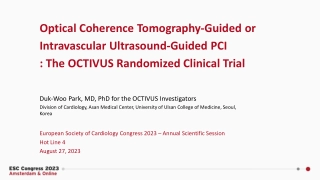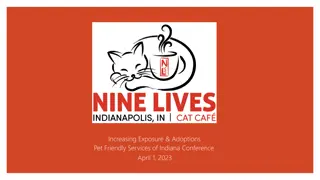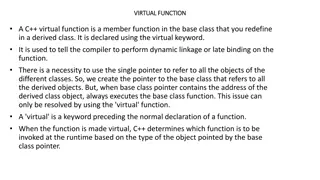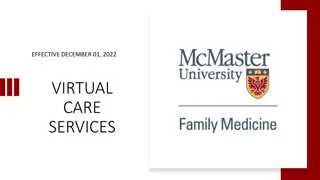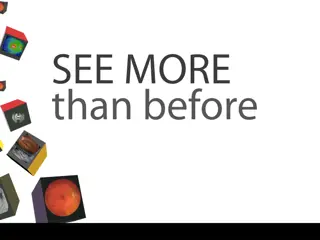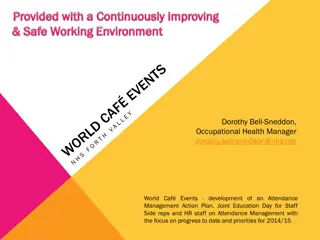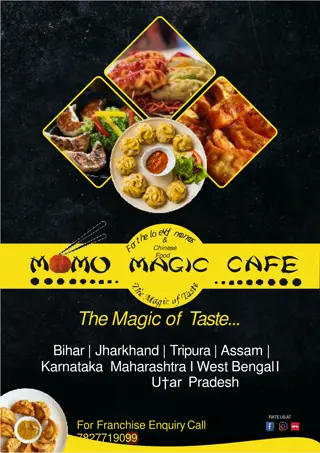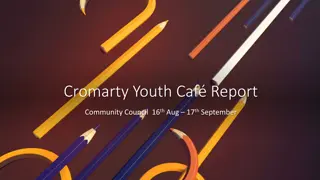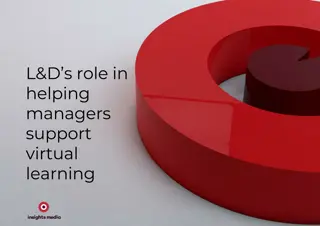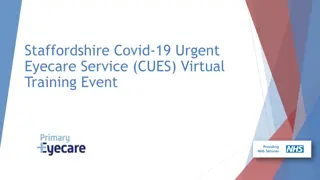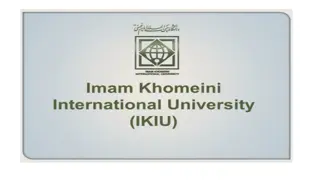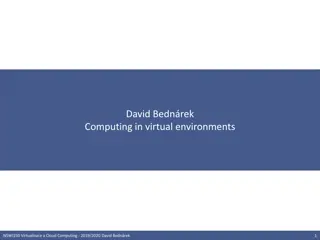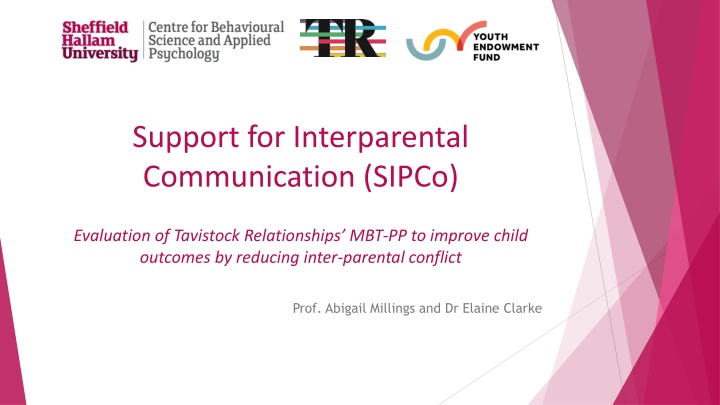
Support for Interparental Communication (SIPCo) Evaluation for Child Outcomes
Evaluating the MBT-PP therapy program to reduce inter-parental conflict and improve child outcomes by enhancing parental understanding. A comparison to Treatment As Usual (TAU) and digital resources is being conducted for families with high conflict levels, funded by the Youth Endowment Fund (YEF).
Download Presentation

Please find below an Image/Link to download the presentation.
The content on the website is provided AS IS for your information and personal use only. It may not be sold, licensed, or shared on other websites without obtaining consent from the author. If you encounter any issues during the download, it is possible that the publisher has removed the file from their server.
You are allowed to download the files provided on this website for personal or commercial use, subject to the condition that they are used lawfully. All files are the property of their respective owners.
The content on the website is provided AS IS for your information and personal use only. It may not be sold, licensed, or shared on other websites without obtaining consent from the author.
E N D
Presentation Transcript
Support for Interparental Communication (SIPCo) Evaluation of Tavistock Relationships MBT-PP to improve child outcomes by reducing inter-parental conflict Prof. Abigail Millings and Dr Elaine Clarke
Background The aim of the Youth Endowment Fund (YEF, the funder) is to prevent children and young people becoming involved in violence YEF are funding this project as part of the a supportive home funding round Inter-parental conflict is bad for children- leads to more emotional and behavioural problems and poor academic outcomes There is little evidence about interventions (therapies) that help reduce inter-parental conflict- so we need more research
We are evaluating: Mentalisation Based Therapy for Parenting under Pressure (MBT-PP) 10 session therapy programme designed to reduce inter-parental conflict (IPC) by supporting the parents to mentalise (think about thinking, taking the other s perspective) about their child s experience, and the motivations and experiences of each other Parents learn to understand their child s perspective and the impact the conflict has on them Parents also learn to understand each other s perspectives such that actions which might previously have been attributed to hostile motivations are viewed in a more balanced way Intervention is for parents (children are not involved in the therapy)
We are comparing this to: Treatment As Usual (TAU) TAU = usual care within the local authority But with some attempt to standardise usual care OnePlusOne suite of digital resources guided self-help targeting inter- parental conflict Argue Better (intact couples) Getting It Right for Children (separated/separating couples)
Evaluation process MBT-PP Post- 3-month follow up questionnaire Screening and consent Baseline questionnaire intervention questionnaire OnePlusOne resources: -Argue Better -Getting It Right For Children 12 weeks 16 weeks Families with high inter-parental conflict are randomly allocated to receive either MBT-PP or supported access to OnePlusOne s digital resources Argue Better (for intact parent couples) or Getting It Right For Children (for separated parents).
Referrals and screening 3 local authorities Bristol, Dorset, and Bournemouth, Christchurch and Poole (BCP) One Gateway Lead (and one admin support in 2/3 LAs) Parents of children/young people (aged 8-14) experiencing high levels of persistent and unresolved conflict Referral by LA practitioner (e.g. Early Help staff) Self-referral (one or both parents scoring <13 on DAS) Willingness to try something new to reduce conflict with co-parent (one/both parents engaging) Exclusion criteria current drug/alcohol misuse, serious mental health problem, current domestic violence, current engagement in court/legal proceedings Race equity We would like our sample of participants to be representative of their local population need to reach out and promote project to minority ethnic groups
Measuring effects of MBT-PP and TAU Self-report questionnaires are completed at baseline, post-intervention, and 3-month follow-up. Parents complete surveys (20-30 mins) that ask about: Their child/ren s strengths and difficulties (Strengths and Difficulties Questionnaire (SDQ); Goodman, 1997) Inter-parental conflict happening around their child/ren Mentalising ability relating to their child/ren Parenting style towards their child/ren Anger expression (general) if separated, emotional adaptation to relationship dissolution Children and young people complete surveys (10 mins) that ask about: Psychological wellbeing Perceptions of inter-parental conflict Incentives (shopping vouchers) given per questionnaire completed
Impact Research Questions Primary Research Question Does MBT-PP (compared to TAU) delivered to parents experiencing inter-parental conflict lead to lower externalising and internalising behaviours in children aged 8-14 (as measured by the SDQ difficulties scale)? Secondary Research Questions Does MBT-PP (compared to TAU) delivered to parents experiencing inter-parental conflict lead to: higher wellbeing in children? lower inter-parental conflict reported by parents? lower inter-parental conflict reported by children? lower parent anger expression? higher mentalising ability in parents? more positive parenting? better parent emotional adaptation to relationship dissolution (in separated parents)?
SIPCo recruitment across LAs 250 200 No. families randomised 150 100 50 0 Jun-23 Jul-23 Aug-23 Sep-23 Oct-23 Nov-23 Dec-23 Jan-24 Feb-24 Mar-24 Apr-24 May-24 Jun-24 Jul-24 Aug-24 Sep-24 Oct-24 Nov-24 Dec-24 Jan-25 Feb-25 Mar-25 Month (2023-2025) Actual Cumulative Projection (actual) Projection (cumulative)
Project milestones Recruitment: Jan 2023 - March 2025 Post-treatment data collection complete: July 2025 Data analysis: August November 2025 Final report published: April 2026 Thanks for listening!

